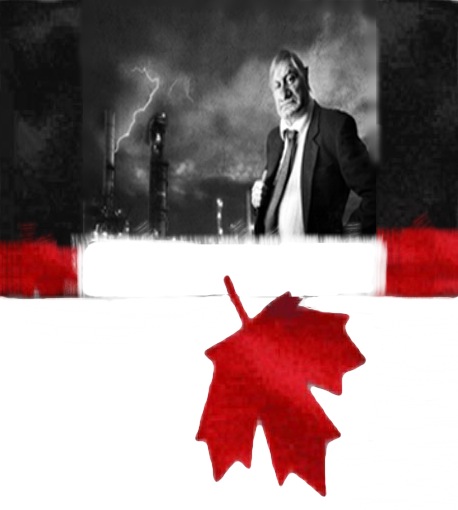Federal government not ready to reduce pollution from oil companies by Mike de Souza, November 25, 2013, Calgary Herald
“We want to get this right for Canada and when I’m ready to release this information that will be released publicly,” said Aglukkaq in response to questions from opposition New Democrats and Liberals at a parliamentary committee. Environment Canada recently released a report on Canada’s emissions trends showing that annual carbon pollution from the oilsands industry, the fastest growing source of heat-trapping greenhouse gases in the country, is pushing an international climate change commitment by Prime Minister Stephen Harper out of reach. Aglukkaq is the fifth federal Conservative environment minister to pledge regulations for the oil and gas sector after nearly eight years in government.
In 2012, Canadian negotiators publicly told the international community, in response to criticism over its withdrawal from the Kyoto Protocol on climate change, that it was “working towards draft regulations for 2013.” A few months later, Aglukkaq’s predecessor, Peter Kent, said the government was “very close” to “finalizing” those regulations for oil and gas companies. NDP environment critic Megan Leslie suggested Aglukkaq wasn’t pursuing action to protect the environment. “She has to look through her notes and then says: ‘well it’s premature (to set a deadline for regulations),’ ” said Leslie. “Give me a break. That says to me that she has no idea, so I don’t know when we’re ever going to see them (regulations) if ever.”
…
Aglukkaq told reporters that reducing greenhouse gases was important for Canada, but she dismissed recently released documents suggesting that oil industry lobbying was blocking progress. “They have their views and there’s a process in place and we will examine their feedback as well,” said Aglukkaq, stressing that she was also trying to work with her provincial and territorial counterparts on regulations. “But my take on it is industry wants to do the right thing. They want to do their part to reduce greenhouse gas emissions. They want to be good environmental stewards as well so this is a partnership and we will move forward when we’re ready.” In the parliamentary committee, Liberal environment critic John McKay told Aglukkaq that her comments about working with provinces and territories to address climate change were coming “a little late in the day” because of a pending decision by the Obama administration with economic implications for Canada on a pipeline expansion project. McKay said that the Harper government’s failure to deliver oil and gas regulations, has turned the proposed Keystone XL pipeline, which would allow Alberta’s oilsands industry to expand and export more of its heavy crude oil to the Gulf Coast of Texas, into a proxy fight over climate change policy, that could affect the Canadian economy. [Emphasis added]
Ottawa to spend $40M this year pitching natural resources at home and abroad by Bruce Cheadle, The Canadian Press, November 28, 2013, Calgary Herald
The Conservative government is spending $40 million this year to advertise Canada’s natural resource sector — principally oil and gas — at home and abroad. Natural Resources Minister Joe Oliver revealed the figure Wednesday as his department seeks another $12.9 million to augment an international campaign designed to portray Canada as a stable and environmentally responsible source of energy. That will bring NRCan’s 2013-14 ad budget to about $40 million — $24 million for advertising abroad and $16.5 million for the domestic market. “The government has a responsibility to provide Canadians with facts [lies?] to assist them in making informed decisions,” Oliver, under opposition questioning, told a Commons committee. “This engagement and outreach campaign will raise awareness in key international markets that Canada is an environmentally responsible and reliable supplier of natural resources.”
The entire federal government advertising budget last year was about $65 million, according to preliminary estimates, with $9 million allotted for Natural Resources. In 2010-11, NRCan spent just $237,000 on advertising, according to the government figures. Outside the committee room, Oliver justified the spending by linking it directly to winning over American public opinion in order to get approval of TransCanada’s controversial Keystone XL pipeline. The $5.4-billion project to carry Alberta bitumen to the Gulf Coast has become a lightning rod for environmental activists as it awaits a decision from U.S. President Barack Obama. … Asked to justify ad spending for one industrial sector that’s swallowing up almost two thirds of last year’s total government ad budget, Oliver was emphatic: “You justify it by what it’s going to achieve and there are billions, tens of billions of dollars, in play.”
Peter Julian, the NDP natural resources critic who teased out the ad spending at the committee, isn’t buying the government rationale. “I don’t see how the Harper government can justify spending tens of millions of taxpayers’ money to do something that the private sector could choose to do,” Julian said after the hearing. The New Democrat said the ads won’t work because the Conservatives, through their policy choices, have “killed the possibility of social licence” — getting public buy-in, essentially — for major resource projects. He said that by slashing environmental assessments and limiting “meaningful public consultation” on pipeline proposals, the government has sparked a public backlash. The backlash, Julian asserted, is “worldwide. Canada has a black eye. There’s no doubt.”
He cited the Obama administration, which has openly urged Canada to up its environmental game, and the European Union, which is targeting higher emissions from oilsands production.
..
Canada is not on track to reach its international pledges for reducing greenhouse gas emissions by the year 2020…. A spokeswoman for the academy, a not-for-profit corporation, says expert panels typically take between 18 and 24 months to report and do not make policy recommendations — but instead provide a base of solid evidence to use in the policy mix. The panel is to be co-chaired by Eric Newell, the former CEO of Syncrude Canada, and by the head of the International Institute for Sustainable Development, Scott Vaughan. [Emphasis added]
[Refer also to:

